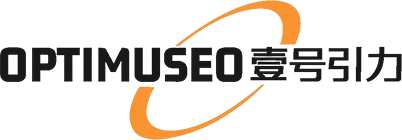Technical SEO is a crucial aspect of search engine optimization that focuses on the technical elements of a website to improve its visibility and ranking on search engine results pages (SERPs). It involves optimizing the infrastructure of a website to make it easier for search engine crawlers to index and understand its content. This includes optimizing website speed, improving site structure, and ensuring mobile-friendliness, among other technical factors. By addressing these technical aspects, website owners can enhance their website's performance and user experience, ultimately leading to higher search engine rankings and increased organic traffic.
Technical SEO is different from traditional SEO in that it does not directly involve content creation or keyword optimization. Instead, it focuses on the backend of a website, such as its code, server configuration, and website architecture. By addressing technical issues and implementing best practices, website owners can ensure that their site is easily accessible and understandable by search engines, leading to improved visibility and higher rankings. In essence, technical SEO lays the foundation for a successful SEO strategy by ensuring that a website is optimized for search engine crawlers and user experience.
The Importance of Technical SEO for Website Performance
Technical SEO plays a critical role in determining a website's performance and visibility on search engines. Without proper technical optimization, even the most well-crafted content may go unnoticed by search engine crawlers, resulting in poor rankings and limited organic traffic. By addressing technical issues such as site speed, mobile-friendliness, and site structure, website owners can improve their website's overall performance and user experience, leading to higher search engine rankings and increased organic traffic.
Site speed is a crucial factor in determining a website's performance and user experience. Slow-loading websites not only frustrate users but also receive lower rankings on search engine results pages. By optimizing site speed through techniques such as image compression, browser caching, and minification of CSS and JavaScript files, website owners can improve their website's performance and user experience, ultimately leading to higher search engine rankings and increased organic traffic. Additionally, mobile-friendliness has become increasingly important in the age of mobile devices. With more users accessing the internet through smartphones and tablets, search engines prioritize mobile-friendly websites in their rankings. By ensuring that a website is responsive and optimized for mobile devices, website owners can improve their website's visibility and user experience, ultimately leading to higher search engine rankings and increased organic traffic.
Key Elements of Technical SEO: Site Structure, Speed, and Mobile Friendliness
Site structure is a fundamental aspect of technical SEO that involves organizing a website's content in a logical and hierarchical manner. A well-structured site not only makes it easier for users to navigate but also helps search engine crawlers understand the relationship between different pages and content. By organizing content into categories and subcategories, using descriptive URLs, and implementing internal linking, website owners can improve their website's site structure, ultimately leading to higher search engine rankings and increased organic traffic.
In addition to site structure, site speed is another key element of technical SEO that plays a crucial role in determining a website's performance and user experience. Slow-loading websites not only frustrate users but also receive lower rankings on search engine results pages. By optimizing site speed through techniques such as image compression, browser caching, and minification of CSS and JavaScript files, website owners can improve their website's performance and user experience, ultimately leading to higher search engine rankings and increased organic traffic.
Mobile-friendliness has become increasingly important in the age of mobile devices. With more users accessing the internet through smartphones and tablets, search engines prioritize mobile-friendly websites in their rankings. By ensuring that a website is responsive and optimized for mobile devices, website owners can improve their website's visibility and user experience, ultimately leading to higher search engine rankings and increased organic traffic.
Uncovering the Secrets of Technical SEO: Best Practices and Strategies
When it comes to technical SEO, there are several best practices and strategies that website owners can implement to improve their website's performance and visibility on search engines. One of the most important best practices is to ensure that a website is easily accessible and understandable by search engine crawlers. This involves optimizing the website's code, server configuration, and website architecture to make it easier for search engine crawlers to index and understand its content.
Another best practice is to optimize site speed by implementing techniques such as image compression, browser caching, and minification of CSS and JavaScript files. By improving site speed, website owners can enhance their website's performance and user experience, ultimately leading to higher search engine rankings and increased organic traffic.
Additionally, ensuring that a website is responsive and optimized for mobile devices is crucial for technical SEO success. With more users accessing the internet through smartphones and tablets, search engines prioritize mobile-friendly websites in their rankings. By optimizing a website for mobile devices, website owners can improve their website's visibility and user experience, ultimately leading to higher search engine rankings and increased organic traffic.
Common Technical SEO Issues and How to Fix Them
Despite the importance of technical SEO, many websites still face common technical issues that can hinder their performance and visibility on search engines. One common issue is poor site structure, which can make it difficult for search engine crawlers to understand the relationship between different pages and content. To fix this issue, website owners should organize their content into categories and subcategories, use descriptive URLs, and implement internal linking to improve their site structure.
Another common issue is slow site speed, which can negatively impact a website's performance and user experience. To fix this issue, website owners should optimize site speed through techniques such as image compression, browser caching, and minification of CSS and JavaScript files. By improving site speed, website owners can enhance their website's performance and user experience, ultimately leading to higher search engine rankings and increased organic traffic.
Additionally, many websites still struggle with mobile-friendliness issues, which can hinder their visibility on search engines. To fix this issue, website owners should ensure that their website is responsive and optimized for mobile devices. By optimizing a website for mobile devices, website owners can improve their website's visibility and user experience, ultimately leading to higher search engine rankings and increased organic traffic.
Technical SEO Tools and Resources for Optimization
There are several technical SEO tools and resources available that can help website owners optimize their websites for better performance and visibility on search engines. One popular tool is Google's PageSpeed Insights, which provides insights into a website's performance and offers suggestions for improving site speed. Another useful tool is Google's Mobile-Friendly Test, which allows website owners to check if their website is optimized for mobile devices.
In addition to these tools, there are also several resources available that provide valuable information on technical SEO best practices and strategies. Websites such as Moz, Search Engine Land, and SEMrush offer comprehensive guides and articles on technical SEO optimization. Additionally, online communities such as Reddit's SEO subreddit provide a platform for website owners to ask questions and share insights on technical SEO optimization.
Measuring Success: Tracking and Analyzing Technical SEO Performance
Measuring the success of technical SEO efforts is crucial for understanding the impact of optimization strategies on a website's performance and visibility on search engines. One way to track technical SEO performance is through tools such as Google Analytics, which provides insights into a website's organic traffic, bounce rate, and other key metrics. By analyzing these metrics over time, website owners can gain valuable insights into the effectiveness of their technical SEO efforts.
Another way to measure technical SEO performance is through tools such as Google Search Console, which provides valuable data on a website's indexing status, crawl errors, and mobile usability issues. By regularly monitoring these metrics, website owners can identify any technical issues that may be hindering their website's performance on search engines.
In addition to these tools, there are also several key performance indicators (KPIs) that can be used to measure the success of technical SEO efforts. These KPIs include organic traffic growth, keyword rankings improvement, and conversion rate optimization. By tracking these KPIs over time, website owners can gain valuable insights into the impact of technical SEO optimization on their website's performance and visibility on search engines.



